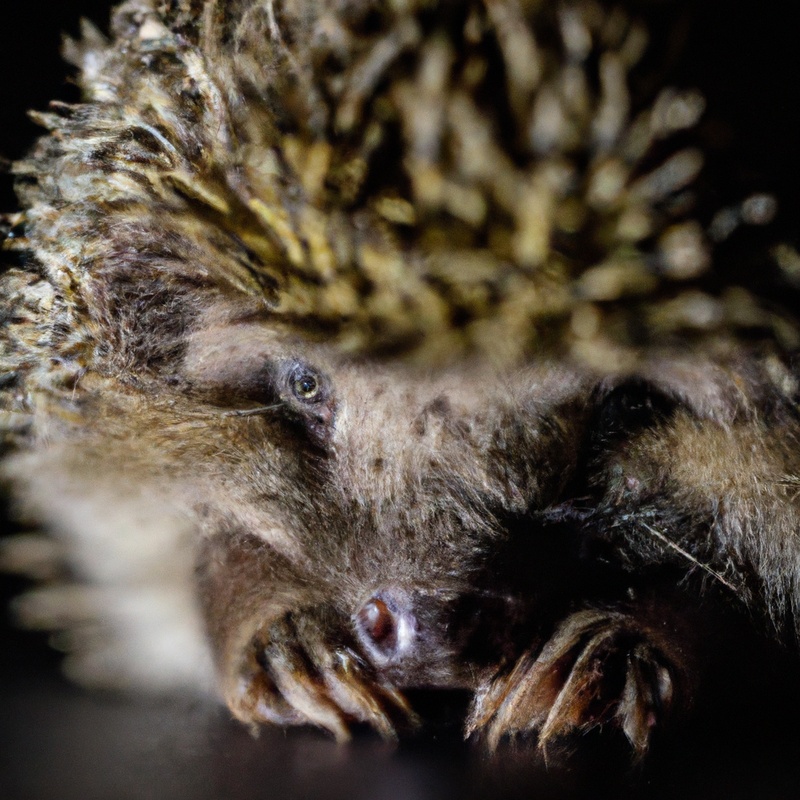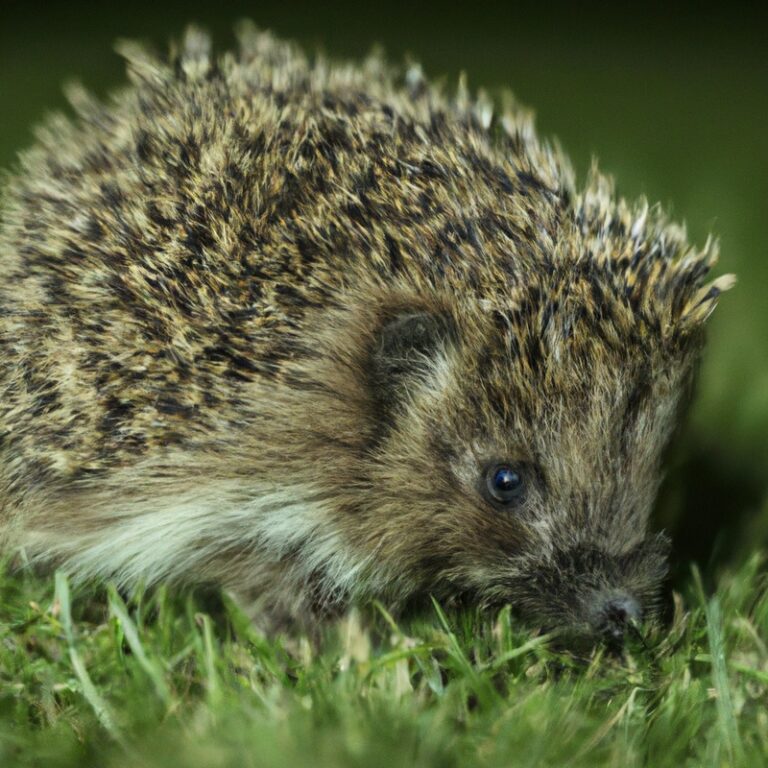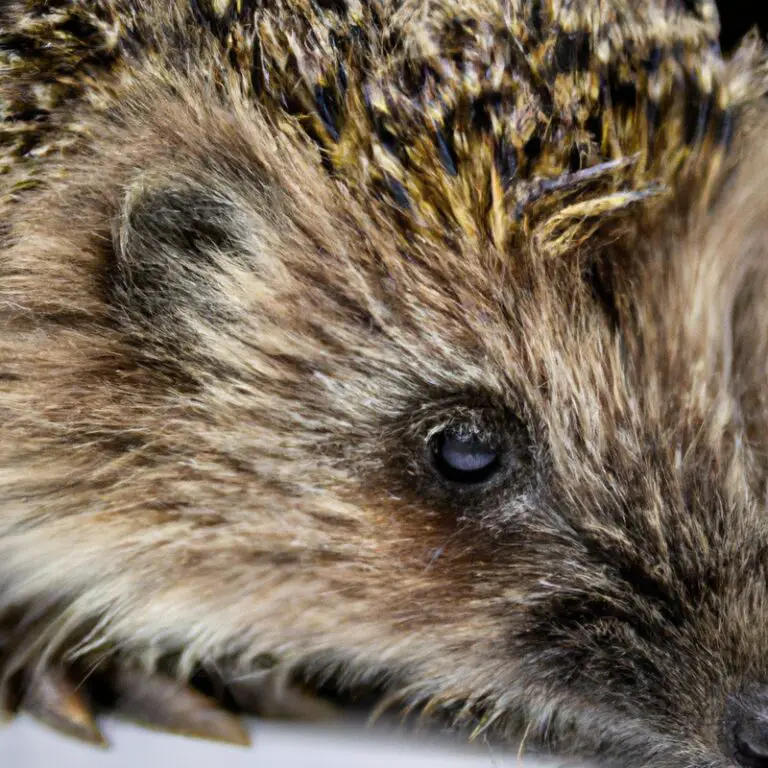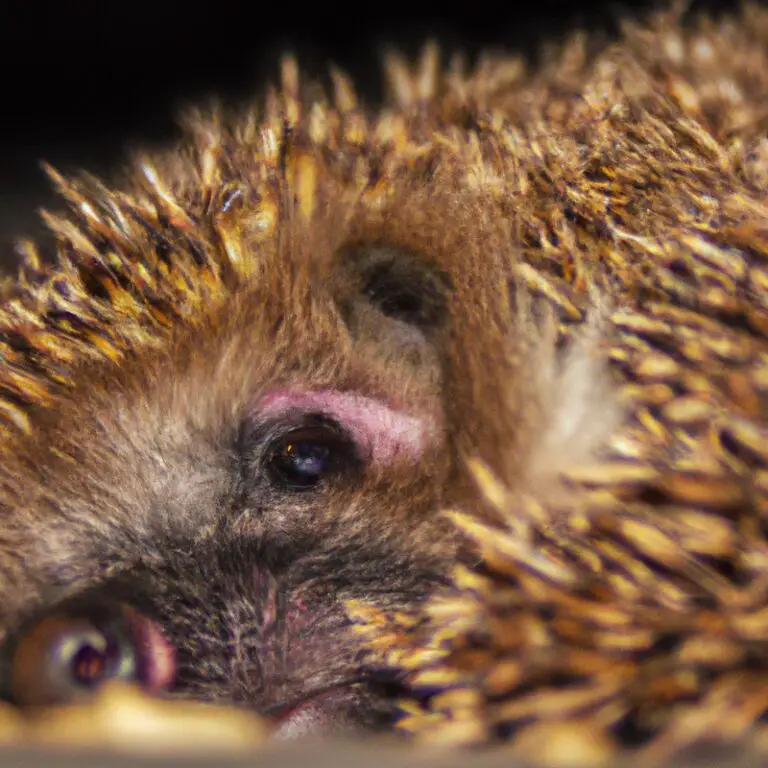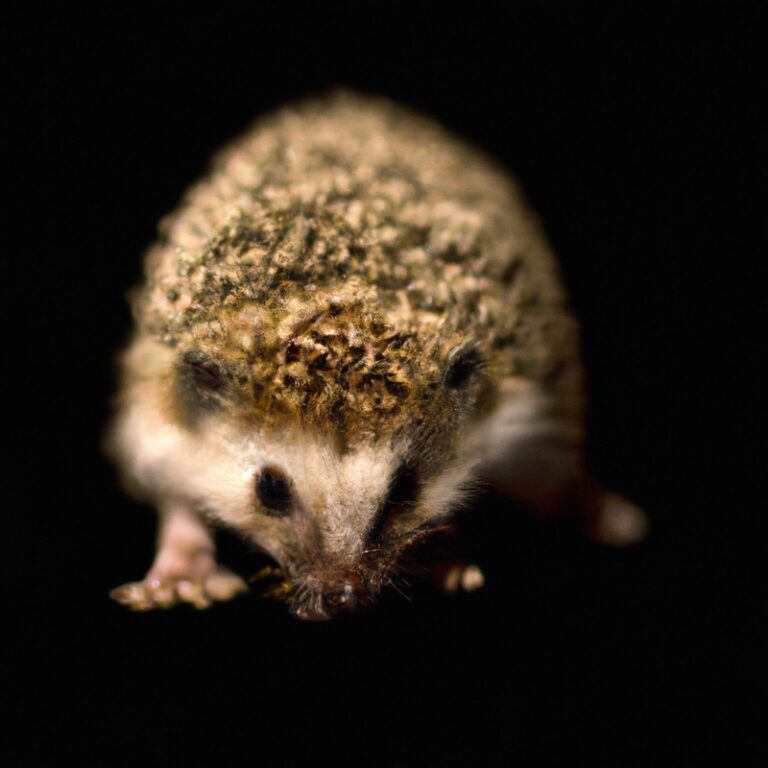What Is The Role Of Hedgehogs In Controlling Ant Populations?
Key Takeaways:
- Hedgehogs play a crucial role in controlling ant populations by preying on them.
- Their diet primarily consists of ants, making them effective natural pest controllers.
- Hedgehog predation helps regulate ant populations, preventing them from becoming overabundant.
- Maintaining hedgehog-friendly habitats can be beneficial for managing ant populations naturally.
Are you tired of battling pesky ant infestations in your home? Well, nature might just have a solution for you – hedgehogs! These adorable creatures aren’t just cute and cuddly, they also play a vital role in controlling ant populations.
But how exactly do hedgehogs become an exterminator?
In this blog post, we’ll dive into the fascinating world of hedgehogs and explore their natural affinity for feasting on ants. Discover how hedgehogs’ diet, foraging habits, and impact on ant populations can help restore balance in our ecosystems.
Get ready to embrace these prickly heroes as we unravel the secret to effective ant control.
Understanding ants and their populations
Ants play an important role in ecosystems, and understanding their populations is essential.
Factors such as food availability and environmental conditions can affect ant populations.
Importance of ants in ecosystems
Ants play a vital role in ecosystems, contributing to their overall health and balance. Here are a few reasons why ants are important in nature:
- Seed dispersal: Ants are known to transport and scatter seeds, helping in the growth and regeneration of plant species.
- Nutrient recycling: Some ants feed on dead organic matter, like decaying insects and plants. They break down these materials, releasing nutrients back into the soil.
- Soil aeration: As ants construct their intricate tunnels and burrows, they enhance soil aeration, improving its fertility and allowing for better water penetration.
- Predator-prey interactions: Ants are fierce predators, preying on insects and other small organisms. They help control the population of these creatures, contributing to the overall balance of the ecosystem.
- Mutualistic relationships: Ants form mutualistic relationships with other organisms, such as aphids. They protect aphids from predators, and in return, the aphids secrete a sugary substance that ants feed on.
By understanding the importance of ants in ecosystems, we realize the need to appreciate and respect these tiny creatures for their significant contributions to the natural world.
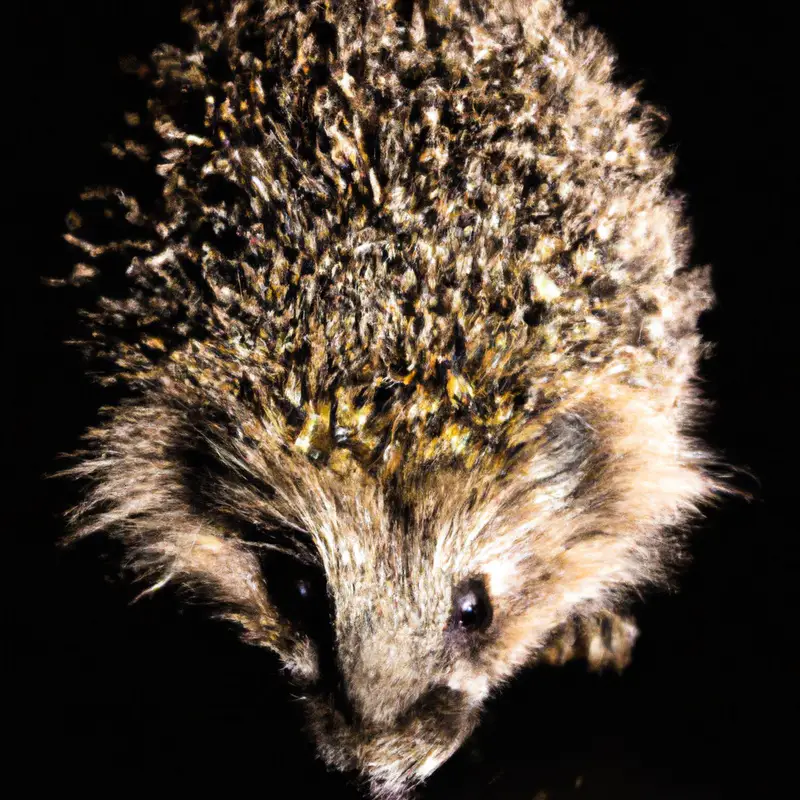
Factors affecting ant populations
Several factors can affect ant populations. One important factor is the availability of food sources.
Ants are attracted to areas with abundant food, so if there is a lack of food, their populations may decrease.
Another factor is the presence of predators. Ants have natural enemies such as birds and spiders that can reduce their numbers.
Additionally, weather conditions can impact ant populations.
Extreme temperatures or changes in rainfall patterns can affect their ability to survive and reproduce. Lastly, habitat destruction and pesticide use can also have a negative impact on ant populations.
Hedgehogs as natural predators of ants
Hedgehogs are natural predators of ants, playing a significant role in controlling ant populations.
Hedgehogs’ diet and feeding habits
Hedgehogs have a varied diet consisting of insects, snails, slugs, worms, and occasionally small rodents. They are opportunistic feeders and will eat whatever is available in their habitat.
Insects, especially beetles and caterpillars, make up a large portion of their diet.
Hedgehogs use their keen sense of smell to locate their prey and also have sharp teeth for chewing. They are primarily nocturnal animals and spend most of their time foraging for food during the night.
Hedgehogs’ diet plays a crucial role in their survival and overall health.
Hedgehogs’ foraging behavior and ant consumption
Hedgehogs have a unique foraging behavior that includes consuming ants as part of their diet.
They are natural predators of ants and actively seek them out for food.
Hedgehogs use their keen sense of smell to locate ant nests and then use their sharp teeth to capture and consume the ants.
This behavior is beneficial as it helps control ant populations naturally.
By consuming ants, hedgehogs play a role in maintaining the balance of ecosystems by preventing ant infestations.
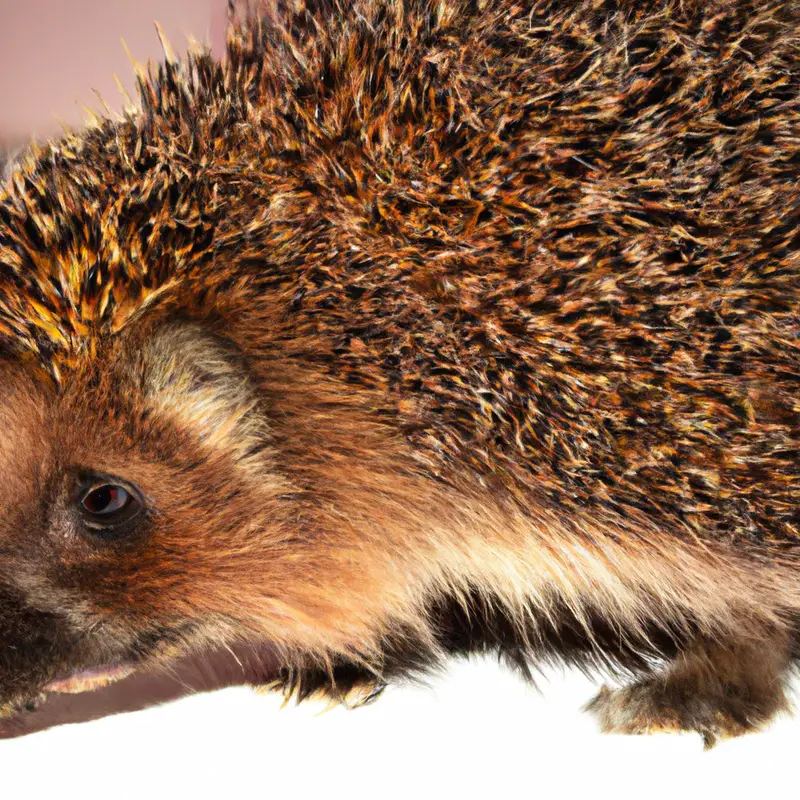
Impact of hedgehogs on ant populations
Hedgehogs have a significant impact on ant populations. These adorable creatures act as natural predators of ants, helping to keep their populations in check.
Hedgehogs forage for ants and other small insects, using their sharp teeth and strong jaws to consume them.
By doing so, they contribute to the control of ant populations in their habitats. This natural predation helps to maintain a balance in the ecosystem, preventing ant overpopulation and potential ecological disruptions.
So, hedgehogs play an important role in controlling ant populations.
Ecological benefits of hedgehogs controlling ant populations
Hedgehogs play a vital role in maintaining balance in ecosystems by controlling ant populations.
This helps protect plant and animal species while reducing ant-related problems.
Maintaining balance in ecosystems
Maintaining balance in ecosystems is essential for the health and stability of our environment. It ensures that different species coexist harmoniously and contribute to the overall functioning of the ecosystem.
When the balance is disrupted, it can lead to negative consequences such as the overgrowth of certain species or the decline of others.
To maintain balance, it is crucial to preserve biodiversity, protect habitats, and promote sustainable practices that minimize human impact on the environment. By doing so, we can help to ensure the long-term survival and well-being of our ecosystems and all the species that depend on them.
Protection of plant and animal species
Protecting plant and animal species is essential for maintaining the biodiversity and ecological balance of our planet. It ensures the survival of various species and contributes to the overall health of ecosystems.
This can be achieved through measures like creating protected areas, implementing conservation programs, regulating the use of natural resources, promoting sustainable agriculture, and raising awareness about the importance of biodiversity.
By actively protecting plant and animal species, we can safeguard the future of our planet and ensure a harmonious coexistence with nature.
Reduction of ant-related problems
Hedgehogs can play a significant role in reducing ant-related problems. These charming creatures have a natural appetite for ants and can help control their populations in your garden or yard.
By welcoming hedgehogs into your outdoor space, you are creating a natural and eco-friendly method of ant control.
Hedgehogs also eat other pests like slugs, snails, and insects, providing a holistic solution to your pest problems. So, if you’re experiencing ant-related issues, consider encouraging hedgehogs to visit your garden and watch them work their magic!
Factors influencing hedgehogs’ effectiveness in controlling ants
Factors such as habitat availability, hedgehog population density, and the availability of alternative food sources can all influence the effectiveness of hedgehogs in controlling ant populations.
Habitat availability for hedgehogs
Habitat availability is key for hedgehogs to thrive and control ant populations. They require areas with dense vegetation, such as gardens, parks, and woodlands, to provide food, shelter, and protection.
Creating hedgehog-friendly environments means avoiding the use of pesticides, providing access points in fences, and leaving wild areas undisturbed.
By ensuring suitable habitats, hedgehogs can effectively contribute to controlling ant populations and maintain a balanced ecosystem.
Hedgehog population density
Hedgehog population density is a key factor in their effectiveness in controlling ants.
The higher the population density of hedgehogs in an area, the more ants they can consume.
Hedgehogs feed on ants as part of their natural diet, and when their population is dense, they can have a significant impact on ant populations.
However, if hedgehog populations are low or declining, their ability to control ants may be limited.
Therefore, maintaining healthy hedgehog populations is important for effective ant control.
Availability of alternative food sources
Hedgehogs are effective in controlling ant populations because they serve as natural predators. However, their effectiveness can be influenced by the availability of alternative food sources.
If there are plenty of other food options for hedgehogs, such as insects, worms, and berries, they may not focus as heavily on consuming ants.
This can reduce their impact on ant populations. Providing a diverse and abundant food supply for hedgehogs can help ensure they target ants as a food source.
Additionally, reducing the use of pesticides can encourage an environment that supports a variety of natural food sources for hedgehogs.
Conservation efforts for hedgehogs and ants
Conservation efforts aim to protect hedgehog habitats and promote biodiversity for sustainable ecosystems, while also implementing integrated pest management strategies to effectively manage ant populations.
Protecting hedgehog habitats
Protecting hedgehog habitats is essential for the survival of these adorable creatures. To ensure their safety, here are some important steps you can take:
- Avoid using pesticides in your garden. These chemicals can harm hedgehogs and their food sources, including ants.
- Create a hedgehog-friendly garden by leaving areas of long grass and providing shelter such as log piles or hedgehog houses.
- Install hedgehog highways in fences and walls to allow them to move freely between gardens and find food.
- Be mindful when using garden machinery, such as strimmers or lawnmowers, as hedgehogs may be hiding in the undergrowth.
- Educate others about the importance of hedgehog conservation and the need to protect their habitats.
By taking these simple steps, you can play a crucial role in supporting hedgehog populations and ensuring their habitats remain safe and suitable for their needs. Let’s work together to protect these charming creatures!
Promoting biodiversity for sustainable ecosystems
Promoting biodiversity is vital for creating sustainable ecosystems.
Biodiversity refers to the variety of life forms in an ecosystem, including plants, animals, and microorganisms.
It is crucial because it contributes to the stability and resilience of an ecosystem.
By preserving different species, we can support the overall health and balance of our environment.
This can be done by creating protected areas, implementing sustainable agriculture practices, and raising awareness about the importance of biodiversity.
Protecting and promoting biodiversity ensures the long-term sustainability of our ecosystems and the services they provide.
Implementing integrated pest management strategies
Implementing integrated pest management strategies is key to effectively control pests without relying solely on harmful chemicals. This approach focuses on prevention, monitoring, and control through a combination of techniques such as habitat modification, biological control, and targeted pesticide use.
By identifying the specific pest problem, monitoring its population, and implementing appropriate interventions, you can ensure long-term management while minimizing environmental impact.
Some strategies include regular inspections, proper sanitation practices, promoting biodiversity, and using organic methods whenever possible.
Frequently Asked Questions
Can hedgehogs completely eliminate ant populations?
Hedgehogs can play a role in controlling ant populations, but they cannot completely eliminate them. Hedgehogs primarily feed on insects, including ants, but they also have other food sources.
While they may help reduce the number of ants in an area, they cannot eradicate them entirely.
Ant populations are complex, with multiple colonies and diverse habitats, making it difficult for hedgehogs to completely eliminate them. However, having hedgehogs around may help keep ant populations in check.
Can hedgehogs be introduced into areas with ant problems?
Yes, hedgehogs can be introduced into areas with ant problems. Hedgehogs are natural predators of ants and can help control their populations.
They have a strong sense of smell and can easily locate ant colonies.
Once they find a colony, they will dig it up and feast on the ants. This can be an effective and natural way to manage ant infestations without the use of harmful chemicals.
It is important to note that introducing hedgehogs should be done carefully and responsibly.
Hedgehogs have specific habitat requirements and need a safe and suitable environment to thrive. Before introducing hedgehogs, ensure that the area has enough food and shelter for them.
Also, check if it is legal and permitted to introduce hedgehogs in your specific area.
Consulting with local wildlife experts can provide valuable guidance on proper hedgehog introduction techniques.
Do hedgehogs eat other insects besides ants?
Yes, hedgehogs do eat other insects besides ants.
While ants are a common part of their diet, hedgehogs are also known to consume beetles, caterpillars, slugs, worms, and other small invertebrates.
Their diet can vary depending on the availability of food in their habitat.
So, if you’re worried about ant populations in your garden, having a hedgehog around can help keep them in check.
Just make sure your garden is hedgehog-friendly with proper shelter and no use of pesticides.
How can homeowners attract hedgehogs to their gardens for ant control?
To attract hedgehogs to your garden for ant control, create a welcoming habitat by providing food, water, and shelter.
Plant native flowers and shrubs to attract insects, a primary food source for hedgehogs.
Create brush piles and leave areas of your garden wild for shelter.
Provide fresh water in a shallow dish.
Avoid using pesticides, as they can harm hedgehogs and disrupt the natural food chain.
By creating a hospitable environment, you can encourage hedgehogs to help control your ant population.
Final Verdict
Hedgehogs play a crucial role in controlling ant populations and maintaining ecological balance. Their natural diet includes ants, and their foraging behavior helps to regulate ant numbers.
By reducing ant populations, hedgehogs protect plant and animal species and mitigate ant-related problems.
Factors such as habitat availability, population density, and alternative food sources can influence hedgehogs’ effectiveness in controlling ants. Conservation efforts should focus on protecting hedgehog habitats, promoting biodiversity, and implementing integrated pest management strategies.
With the right conditions, homeowners can attract hedgehogs to their gardens to naturally control ant populations.

